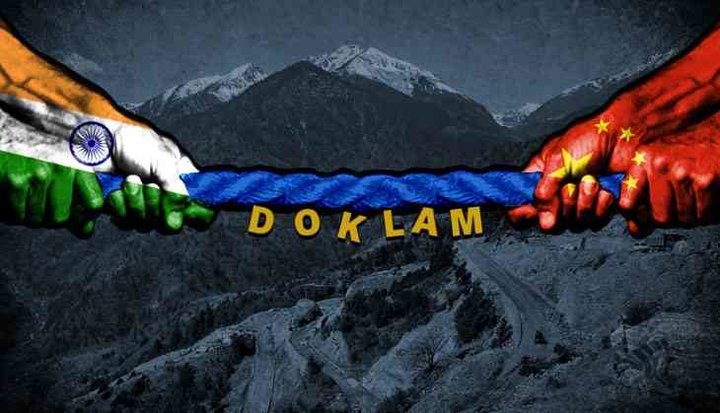(TibetanReview.net, Aug19, 2017) – Japan has, on Aug 18, expressed support for India’s stand on its now more than two-month-old Doklam standoff with China, saying there should be no attempt to change the status quo on the ground by force. China has called Japan’s stand irresponsible. China has earlier claimed that no other country, including even Bhutan, supported India’s position on the issue.
Acknowledging the situation at the Doklam Plateau, Japanese Ambassador to India Kenji Hiramatsu has said in a statement, “We recognise Doklam is a disputed area between Bhutan and China and the two countries are engaged in border talks. We also understand that India has a treaty understanding with Bhutan, that’s why Indian troops got involved in the area.”
Earlier, the Bhutanese Government had on Jun 29 issued a press release, saying the construction by China of a road inside the Bhutanese territory was a direct violation of agreements and affected the process of demarcating the boundary between the two countries.
Hiramatsu has said the Doklam situation had the potential to affect regional stability and his government was watching it closely.
The endorsement of the Indian position by Japan is a significant development at a regional level as China has violated agreements with Japan as well and not with only India and Bhutan, noted asianage.com Aug 18. Japan is also engaged with sovereignty issue with China over East China Sea.
The Japanese reaction followed two separate interventions by the US calling for direct dialogue between India and China to resolve the crisis while cautioning against unilateral changes on the ground, noted timesofindia.com Aug 18.
Even while admitting that it had an ongoing border talks with Bhutan, with 24 meetings having been held since the 1980s, China insists that Donglang – its own named for Doklam – belongs to it by virtue of its rule over Tibet.
Meanwhile China’s Foreign Ministry Spokeswoman Hua Chunying said Aug 18 that the Japanese ambassador to India “should not wag his tongue too freely” on the standoff between China and India in the Dong Lang (Doklam) area, reported China’s official Xinhua news agency Aug 18. Speaking at a routine a press briefing, she has said it was better not to make irresponsible remarks before making clear the facts, claiming it was India, not China, that was trying to create trouble and change the status quo.



